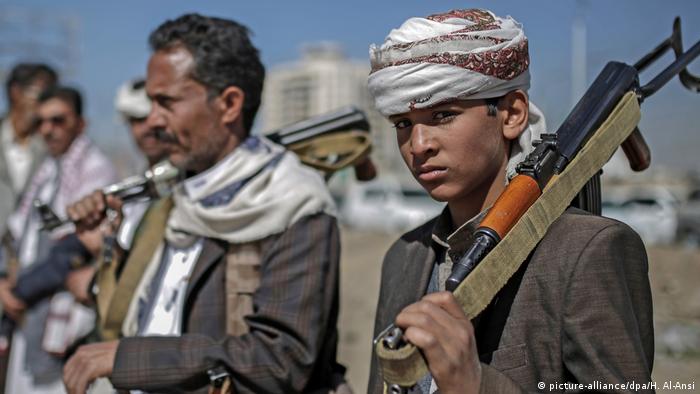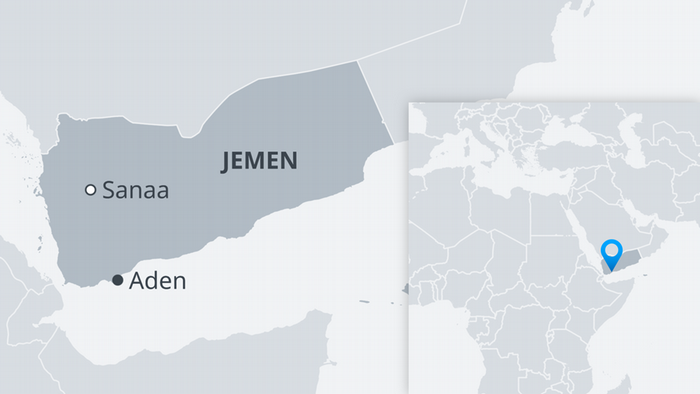The war in Yemen is often described as a proxy war between Saudi Arabia and the Iranian-backed Houthi rebels. But the Yemeni militia is more than just a stooge of Tehran.

The most significant opposition to the Houthi movement is a US-supported and Saudi-Arabia-led coalition, which will see the Houthi rebels as a proxy of Iran. But that is only half the truth.
The Houthi movement has its origin in the Northern province of Saada in Yemen, on the border with Saudi Arabia. Already in the year 2004, the militia challenged the then-Yemeni President Ali Abdullah Saleh. Since then, the influence of the Houthi rebels continued to grow, up to the year 2014, the militia had occupied large parts of the North and the capital, Sanaa.
The influence of Iran
The Western allies of Saudi Arabia accuse Iran, the Houthi rebels directly support financially, guide and arm – an allegation the Huthis have already repeatedly rejected.
Tehran supported, in his Remarks, the Huthi movement. Experts also indicate that Iranian technology, including drones, will be used in the event of attacks on the Houthi rebels. From various sources it is apparent that missiles and smaller arms to come through the Oman into the country, where the evidence is sketchy.
Anyway, it is difficult to find evidence for the involvement with Iran. A panel of experts from the United Nations has stated that the Houthis from Tehran have been supplied with fuel, in order to give their movement more impetus, however, could be demonstrated neither a direct financial or a military connection. Peter Salisbury, an expert at the non-governmental organization International Crisis Group told DW: “is Iran really the Houthi rebels immediately, so they have managed at least to create a minimum level of uncertainty about it.”

The possibilities of the military
The military Huthi movement, which has given itself the name of “Ansar Allah”, consists of a mixture of different troops. About 60 percent are leaking fighters in the Yemeni army, which served the former President Saleh.
A recently published report by Renad Mansour and Peter Salisbury is of a troop strength of between 180.000 and 200.000 armed fighters. They have routes with access to various weapons, such as tanks, technical vehicles, anti-tank guided missiles and long-range ballistic missiles. The Houthi rebels say that many of the weapons come from their conquest to the year 2014. The Houthi movement does not have the financial and military resources of their Saudi neighbors. However, the militia has proven what she’s capable of: controlling a third of the Yemeni territory, including the population-rich cities – and they have even managed to Saudi to break boundaries.
How was that possible?
The origins of the Huthi movement in the 1980s. In the North of Yemen, an Alliance of forces, belonging to the Zaydismus, a moderate Form of the Schiitentums integrally formed. You should form a counter-movement to the spread of Salafism. The Zaydismus is in his Beliefs closer to the Sunnis than the Shiites, especially in Iran, Iraq and Lebanon predominantly. Not all the followers of the Zaydismus are part of the Houthi movement.
A further mainspring of the movement, the perception was that President Saleh disadvantaged the North economically.
Video 02 view:12 pieces
Yemen: women’s rights in times of war
Facebook Twitter google+ send Tumblr VZ Xing Newsvine Digg
Permalink https://p.dw.com/p/3QE5M
Women’s rights in times of war: on the situation in Yemen
In the year 2000, the group formed a militia and was involved in between 2004 and 2010 in six wars against the then-President Saleh until the latter was deposed by the Arab spring of 2011. Two years in which a National dialogue took place followed, until the Houthi rebels, the Saudi Arabia supported the new President, Abed Rabbo Mansour Hadi, extruded and Sanaa revenues. You Saleh sought to the shoulder-to-shoulder with their former rivals, which they were for Saudi Arabia and the United Arab Emirates is a threat. The response was a ground and air war against the Houthi militia.
The Huthi movement has a strong anti-imperialist characteristics, resulting in a dislike for Israel, the United States and Saudi Arabia exists. Although there are efforts, areas in Saudi to take Arabia, limited, a large part of the activities of the militia in Yemen. Salisbury believes that the ideology of Houthi militia is more likely to play a subordinate role: “If the Houthis power-up in regional conflicts, it is about political alliances and strategic interests.”